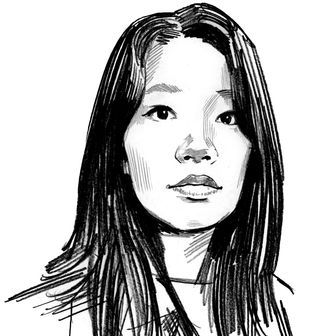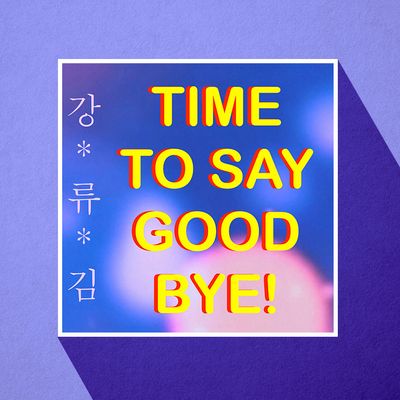
What is Asian Americanness and who does it serve? It’s a question that Jay Caspian Kang, E. Tammy Kim, and Andy B. Liu have been tackling for the better part of a year on their podcast, Time to Say Goodbye. They began the show last April as an outlet for discussing the coronavirus outbreak within an international context, and, more broadly, to talk about Asia, domestic and international leftist politics, and, of course, what it means to be Asian in America. (The name of the podcast comes from an Andrea Bocelli song which, according to the hosts, is stereotypically beloved by first-generation Asian immigrants.) Kang, Kim, and Liu have since talked about everything from the class politics of K-dramas to Filipino nurses and the NBA wildcat strike. They’ve also interviewed guests such as CHamoru human-rights lawyer and writer Julian Aguon and Princeton associate professor of African American studies Naomi Murakawa.
I first came to TTSG last summer, when the protests sparked by the murder of George Floyd erupted all over the country. It was the first time that my husband and I, both Korean Americans, had heard anyone challenge so incisively the mainstream Asian American discourse around diversity, representation, and what TTSG calls “upper-middle-class-ascendant identity politics.” The hosts aren’t afraid to critique their own part in this too: Kim is a journalist and former lawyer who covers labor and immigration, Liu is a historian of modern China, and Kang, the most well-known of the three, is a writer-at-large for the New York Times Magazine who’s always getting into trouble on Twitter. Together, they manage to keep the show fun and irreverent; they care deeply about the issues they discuss, but they refuse to take themselves too seriously.
In recent weeks, TTSG (and their growing, Patreon-subscriber-only Discord chatrooms) have become a place of solace and community, in the wake of the horrifying murders at massage parlors in Atlanta last month and other attacks against Asians in the U.S. I first spoke to the hosts in mid-March, shortly before the Atlanta shootings. After the murders, I emailed them to ask what they thought was missing from the dominant narrative surrounding those attacks. They sent back a collective answer, saying that it was important to challenge people’s thinking on retribution. In their view, calling for more policing in the Asian communities — especially in poor and working-class enclaves — has never helped those communities stay safe. (They also tackled the Atlanta shootings and other attacks in recent episodes.) “My fear is that we are taking the specific circumstances of these attacks, and the concrete types of vulnerability facing people who are older, women, working-class, and first-generation,” added Liu, “and assimilating these uncomfortable details into big histories and ideas with which we are more comfortable.”
You’ve said that you started the podcast as a sort of reaction to all this talk about Asia when the coronavirus first started. Did you have the idea to do a podcast before that?
Jay Caspian Kang: I didn’t. I knew Tammy through journalism and I had started talking to Andy about basketball and an article that he had written for Mother Jones about the controversy in China over the NBA in Hong Kong. A lot of stuff was going on with how people were communicating things about China and South Korea: It was the fault of China, while Korea was this sort of bastion of technology and facts with an epidemiological response that everybody was looking up to. Tammy knew a lot about the epidemic prevention act that Korea passed after MERS and Andy knew a lot about China. And so I was like: Can we be the people who can tell you, through guests and everything else, what is actually happening worldwide in the pandemic? In retrospect it’s this hyper niche thing, and I’m not sure if we really thought we would be doing it this long.
E. Tammy Kim: I think we had a little bit of an ideological plan, which is that we’re interested in left politics. Obviously we problematize the notion of Asian Americanness, but we saw that some sort of contribution to Asian American leftism could be interesting, and that we could place that in a kind of anti-national context.
As a group you resist the idea of a homogenous Asian American identity, yet this podcast also fosters community for people who identify that way.
Liu: I think part of what the general complaint about the way we talk about Asian American stuff is that it’s too domestic-focused, too inward-looking, too circumscribed by the United States’ borders. The reason I probably pursued a lot of this stuff was rooted in my feeling a sort of poverty of understanding of myself, and of where my family comes from within the US-centric ways of looking at the world. I think that’s one of the things we had in common: we agreed that the idea that “Asian America” is just another color in this rainbow of U.S. identities is inadequate. It’s not enough. We have to probe into what is specific to the Asian experience. That will help us understand what is specific to other experiences too, and how they’re similar and how they’re different.
Kang: The three of us — and I think a lot of people agree with us and there are many people who don’t — are skeptical about the way that the Asian American identity has been processed and presented, especially in the last ten to 20 years. And I don’t think it’s just Asian Americans, I think it extends to most immigrants as well. I think it extends to the working white poor. Is there a way to define what that is in a new way without falling into a trap where you throw everything out, and you sort of just become somebody who only talks about class? I don’t think that any of us think that it is possible to talk to Asian people or to talk to people who have immigrated here and just say, “You should just forget about everything that you identify with yourself and only think of yourself through economic terms.”
Liu: I mean it’s not just hardcore leftists who talk this way. It’s how all Americans, from the right and from the left, talk about this stuff: It’s about opportunity and moving up and blah, blah, blah. The big spark is this dissatisfaction with the resurgence of nationalism within the way the U.S. left talks about stuff.
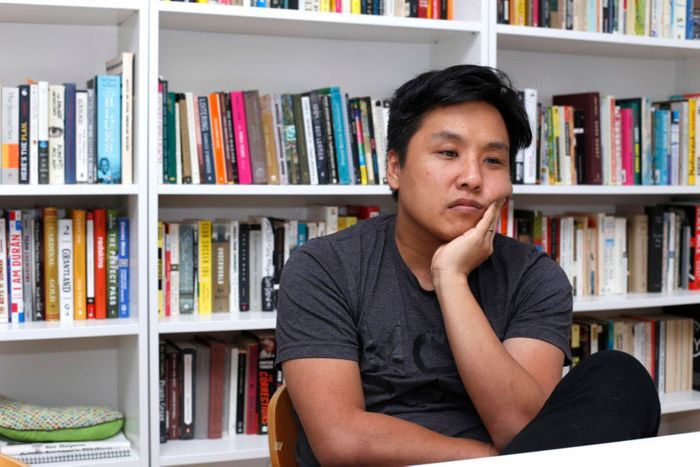
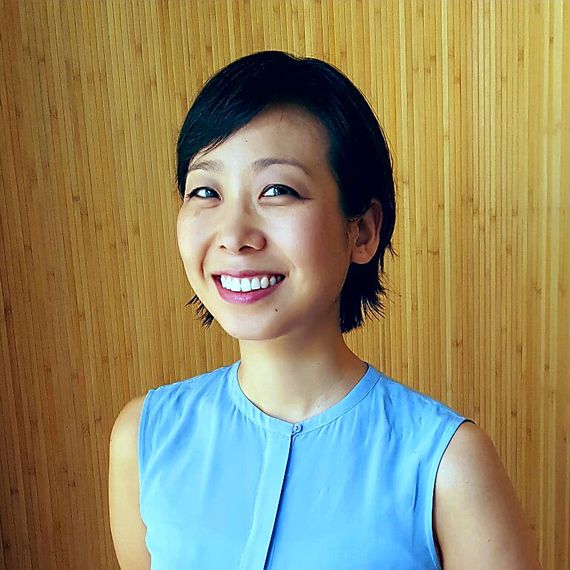
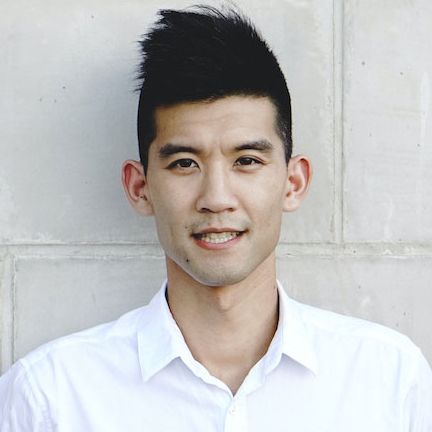
Can you tell me a little bit about how the three of you came to your political views? Do you think being Asian has formed part of that identity?
Kim: I don’t think Asianness has had anything to do with it for me. My parents are pretty progressive, so I inherited some of those politics from them. I think I got really politicized in law school and a bit in college, and I’ve done a lot of activist and organizing work. My views just came from thinking about why people are so poor and why things are so imbalanced. Occupy Wall Street and Bernie’s rise were very important to me as well.
Liu: Tammy, I think you’re more in these activist spaces than I am. What do you think about the fact that they are so white — or were so white, at least? Did you feel like, Do I belong here? Where do I fit in? Because I still think about that when I do stuff. Sometimes I’m like, Why am I here?
Kim: Professionally I was politicized through immigrant worker organizing, and that wasn’t white. I could empathize based on my parents’ experience and my own experience in childhood. But yeah, those spaces you’re describing can be very white. There’s certainly the stereotypical critique of the Bernie types.
Kang: I was very interested in this stuff starting in college, and some professors there had a lot of impact on me. I was always a little more skeptical of electoral politics. I was always more interested in protests and even when I became a journalist, it became one of the main things that I covered. I think it’s impossible to be interested in protests without sort of immersing yourself in left politics. Starting with Ferguson in 2014, it really has been a seven-year process for me — of going to protests and covering protests and being somebody who really supports the right to protest and the need for it. My access is more through that lens than an electoral or an intellectual lens.
How has the podcast evolved over the past year?
Kang: When the protests started last summer, that gave us a new purpose: to highlight what was happening and what we thought about it. How do we place ourselves within this struggle from our particular vantage point? For Tammy and me, there was a war in our parents’ country in 1950, and there was a dictatorship that arose out of that war. There were a lot of people who were essentially refugees within Korea. Is there a way to tell that story within the context of what is happening in the streets without sort of monopolizing the conversation and changing the fight for Black lives into a fight for anti-imperialism? I don’t know if we succeeded or failed, but that was our earnest idea of what we were trying to do.
Liu: Very early on, Tammy and I would be getting into these long conversations about a topic, and Jay would be like, “Shut up and wait for the show” — which I think wasn’t so much about that particular episode, but about setting the tone for how we wanted the show to be. Jay will also make sure we have something fun once in a while so that we don’t take ourselves too seriously. To the extent that we do have a lot of listeners, part of it is that it doesn’t come off like a news show.
Right. It’s irreverent, it’s funny. Are there certain subjects you want to tackle in the future that you haven’t tackled yet?
Kang: We always want to make the show more international. The show would be boring to us if we just turned into an Asian American podcast about movies. We want to always have a broader perspective than that, one that’s rooted in our politics. I think the best way for us to do that is to talk about other struggles around the world that our listeners might not know about, where we ourselves are learning about something new.
I loved the episode with CHamoru attorney and writer Julian Aguon, about Guam and his work fighting for indigenous rights and environmental justice there.
Liu: We’ve had conversations about how we’re East Asia–centric and how it’d be good to expand. At the same time, East Asian Americans interviewing someone like Julian might be different than a white American interviewing him. It’s kind of hard to say why, but you can speculate about how we might approach it slightly differently. In my daytime job in academia, I’m always thinking about connections across the world. And I am very loath to just do the China-West thing and think about China’s connection to other parts of East Asia, South Asia, or Southeast Asia.
Have you seen your listenership grow? Is your Patreon picking up?
Kang: Yeah. Way more than we thought. I mean, it’s a very niche product.
Kim: I’ve been surprised and happy about that — seeing the numbers grow over the course of the year and seeing the community intensify, first just starting with email correspondence and DMs. And then as Jay and Andy were mentioning, in our Discord for Patreon listeners, there’s just an incredible mix of people. It’s not just Asian Americans. It’s multiracial and international. We have listeners in Europe, Australia, and Asia. I’m also really struck by the fact that we occasionally get people who don’t even have left politics — who come to the pod in many different ways, including for Andy and Jay’s basketball coverage. It’s really a mix. Being diasporic people and having a connection to areas that have been the subject of Western and Eastern colonialism, I think, gives us a lens to explore other diasporas. For instance, we had the journalist Anakwa Dwamena, who’s African American, on the show. That makes sense in the same way that it made sense that we interviewed Julian about Guam. It’s been teaching me about all of these different forms of connection and how, even with our relatively small and niche base of knowledge, we can make all these analogies.
Kang: The conversations that people have on the Discord have certainly opened my eyes to how many people there might be that share our politics. Or maybe if they don’t, they’re interested in it, and they have these conversations that I can’t even comprehend because they’re at some level of theory or intellect that’s beyond my own impoverished knowledge about this stuff. That’s so exciting to see, and it’s cool to think that you are in conversation.
I think that’s actually the main benefit of having the podcast medium as opposed to writing op-eds, which Tammy and I do, or Andy’s academic work, where you just kind of feel like, “This is just me etching out tablets on the mountain and handing them out.” We email back and forth with our listeners, we talk to them about things, and now we DM with them on Discord and have long conversations. For me, the community has been really helpful getting through what has been a difficult year, obviously, and not feeling like, Oh, I’m the only person who thinks these things.
What’s sort of your wildest hopes and dreams for the podcast in terms of reach, in terms of community? Do you eventually want to get a producer? Do you want to get sponsors?
Kang: I don’t know.
Liu: I don’t want to jinx it.
Kim: I think we feel really happy with where we are right now. We all have day jobs, and for none of us is podcasting our primary medium. It’s sort of nice to not have it be the main thing, but an outlet that is fun and a different way to communicate with people, and to test out ideas in a way that you can’t in print. I think that could potentially be threatened if it got too big or too established.
Jay, you wrote an op-ed for the Times about the recent attacks on Asians and how we need to address the seeming contradictions inherent in conversations about race and justice, in light of the fact that some of the assailants have been Black. What path forward do you see in covering this or thinking about it?
Kang: It’s difficult. I think that progressives and left people within this community can’t just turn a blind eye to what’s happening. Especially if they’re sort of inoculated from the violence itself because they don’t live in the working-class neighborhoods where this happens. I think that that would be an abandonment of everything, including poor people who sometimes look to people in our positions to speak up for them. Being like, “Ah, I don’t want to touch that,” would be an abdication of responsibility.
And yet at the same time, the dance that one has to do — the difficulty that there is to not fall into tropes that are incredibly harmful and false — puts you in a position of being a hall monitor, of saying, “Don’t say that, don’t do that.” Maybe that is a role for people in our position, to try and steer people away from ideas about black criminality or sparking a race war, of encouraging more police presence in these neighborhoods, or allowing people to racially profile based off of this sort of stuff. Because all that would be catastrophic — not just for the communities affected, but for everybody, including Asian Americans. The vast majority of people, especially the people in these communities, don’t want more violence. They don’t want police running down people throughout their community. Because what happens after the police come? Then ICE comes.
Liu: We did one episode on the articles by Oaklandside and Oakland Voices about the attacks against Asians in Oakland that did a sort of empirical breakdown. My thinking hasn’t changed too much since that episode, which is just that I think we don’t really know what’s going on. There’s a real temptation to have a moral panic just because you see more tweets about attacks on Asians every single day, but I’m still kind of waiting for the hard data to suggest it. On the other hand, there is something there. Maybe it’s not in the actual number of attacks or whatever going up, but the sense of being ignored, that politicians don’t care about us. That’s the nerve that’s being struck for a lot of people, and that is something that’s real. But that’s a separate thing and we should be clear about that.
Kang: Well, there does seem to be some data that suggests there’s been an increase in attacks on Asians, and it tracks with what you would expect to happen, which is that, regardless of who is president — and I do think Trump definitely made it worse — Asian people are going to be blamed for this. We could have had an Asian president and Asian people would be blamed for the coronavirus.
The question for me is always: How should we respond to this in a way that doesn’t put a highly educated, theoretical filter on it, and ends up missing all the people that you should be caring about — like this woman in White Plains who was attacked? She was an 83-year-old Korean woman who made her living collecting cans. If your only response to an 83-year-old Korean woman being attacked is, like, “Well, I don’t know, is it really a hate crime?” then I think you have failed. If your only response is, “I’m going to buy a gun and I’m going to start a vigilante thing,” then you’ve also failed. It’s a very difficult thing to navigate.
On a lighter note, my husband wants to know who’s going to win the NBA finals.
Kang: The Nets probably.
Liu: I’m going to regret saying this: the Utah Jazz. I think it’s probably the Nets but I can’t come to that reality yet.
One last question for Jay. I’m curious about your Twitter personality. You obviously care deeply about important issues and I’m just sort of curious about that tension with how you tweet.
Kang: It’s always been uncomfortable for me to occupy a serious space, so I think that it’s okay to be horrible on one of the public platforms. I don’t know though — I used to think it was funny, but now I’m just kinda like, Why am I doing this? I’m 41 years old, I have a child. Why am I purposefully trying to get people to hate me on the internet? I always think about what would happen if I never was on Twitter. I think nothing would change, except people might have a higher opinion of me. I’ve always had a troll impulse, probably since I was like 10 years old. I can’t help myself. I’m just a troll at heart.


